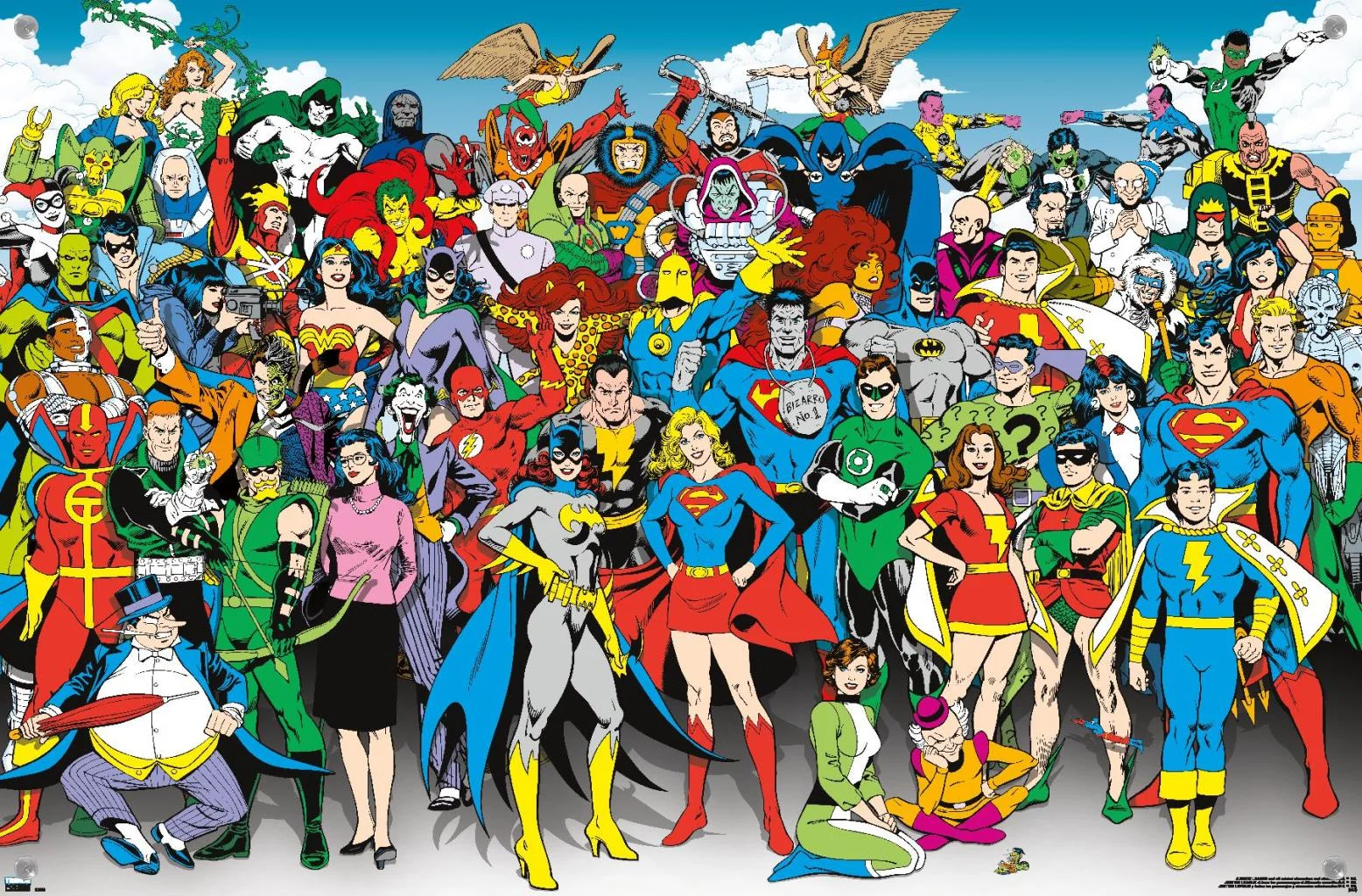zoomacademia – DC Comics, one of the oldest and most influential comic book publishers, has captivated audiences since its inception in the early 20th century. Known for its iconic characters and rich storytelling, DC has become a cornerstone of popular culture, shaping the superhero genre and inspiring generations of readers.
Origins and Early Years
DC Comics was founded in 1934 as National Allied Publications, with its first comic book, New Fun: The Big Comic Magazine, hitting the stands in 1935. The company gained traction with the introduction of Superman in Action Comics #1 in 1938, a character that defined the superhero archetype. Superman’s success was followed by the creation of Batman in 1939, who introduced a darker, more complex hero to the lineup.
The Golden Age of Comics
The late 1930s to the early 1950s is often referred to as the Golden Age of Comics. During this period, DC introduced a host of superheroes, including Wonder Woman, The Flash, and Green Lantern. These characters not only entertained but also provided a sense of hope and justice during the tumultuous times of World War II.
The Golden Age also saw the establishment of the Justice Society of America, the first superhero team, which laid the groundwork for future team-ups and crossovers that would become a hallmark of comic book storytelling.
The Silver Age and the Revival of Superheroes
The Silver Age, beginning in the late 1950s, marked a resurgence in the popularity of comic books. DC revitalized its lineup by introducing new versions of classic heroes, most notably with Showcase #4 featuring the new Flash (Barry Allen) in 1956. This era also introduced characters like Green Lantern (Hal Jordan) and the Atom (Ray Palmer).
The Silver Age is characterized by a more science-fiction-oriented approach, addressing contemporary issues such as race relations and the Cold War, which resonated with a younger audience. The era culminated in the formation of the Justice League of America in 1960, bringing together iconic heroes in a collaborative format that would become a staple of comic book lore.
The Bronze Age: Darker Themes and Complex Narratives
The 1970s ushered in the Bronze Age of Comics, a period marked by a shift towards more mature and socially conscious storytelling. Writers like Denny O’Neil and Neal Adams tackled themes such as drug abuse and civil rights in stories like Green Lantern/Green Arrow.
This era also saw the rise of notable graphic novels, including Batman: The Dark Knight Returns by Frank Miller, which redefined Batman for a new generation and highlighted the darker aspects of heroism and morality.
The Modern Age and the Multiverse
The 1980s and 1990s brought about the Modern Age of Comics, characterized by the expansion of the DC Universe and the introduction of complex narratives. The concept of the multiverse was introduced, allowing for various alternate realities and storylines, most famously in Crisis on Infinite Earths (1985-1986), which restructured the continuity of the DC Universe.
This period also gave rise to iconic story arcs like Batman: Year One and The Death of Superman, capturing the imaginations of fans and influencing adaptations in other media.
DC Comics in the 21st Century
In the 2000s, DC continued to innovate, launching the New 52 initiative in 2011, which rebooted many of its flagship titles, making them more accessible to new readers. The introduction of characters like Harley Quinn and the expansion of diverse representations within its roster showcased DC’s commitment to evolving with the times.
The integration of DC characters into film and television has also played a crucial role in their resurgence. The success of the Dark Knight trilogy and the Wonder Woman and Aquaman films exemplify DC’s ability to captivate audiences beyond the comic book medium.
Conclusion
DC Comics has undeniably shaped the landscape of storytelling and pop culture. From the Golden Age of heroes to the complexities of modern narratives, DC has continually reinvented itself while staying true to the core values of heroism, justice, and hope. As it moves forward, DC Comics remains a vital force in the world of entertainment, inspiring new generations of fans and creators alike.










